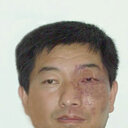Jiangtang decoction ameliorate diabetic nephropathy through the regulation of PI3K/Akt-mediated NF-κB pathways in KK-Ay mice.
Sleutelwoorden
Abstract
BACKGROUND
Jiangtang decoction (JTD) is a China patented drug which contains Euphorbia humifusa Willd, Salvia miltiorrhiza Bunge, Astragalus mongholicus Bunge, Anemarrhena asphodeloides Bunge, and Coptis chinensis Franch. For decades, it has also been used clinically to treat diabetic nephropathy (DN) effectively; however, the associated mechanisms remain unknown. Thus, the present study aimed to examine the protective efficacy of JTD in DN and elucidate the underlying molecular mechanisms.
METHODS
A diabetic model using KK-Ay mice received a daily administration of JTD for 12 weeks. Body weight, blood glucose, triglycerides (TGs), total cholesterol (TC), urea nitrogen (UN), creatinine (Cr), and microalbumin/urine creatinine (MA/UCREA) was measured every 4 weeks. Furthermore, on the day of the sacrifice, blood, urine, and kidneys were collected to assess renal function according to general parameters. Pathological staining was performed to evaluate the protective renal effect of JTD. In addition, the levels of inflammatory cytokines (tumor necrosis factor-α [TNF-α], interleukin [IL]-6 and intercellular adhesion molecule [ICAM]-1), insulin receptor substrate [IRS]-1, advanced glycation end products [AGEs], and receptor of glycation end products [RAGE] were assessed. Finally, the phosphoinositide 3-kinase (PI3K)/protein kinase B (Akt) signaling pathway and involvement of nuclear factor-κB (NF-κB) was further analyzed.
RESULTS
After 12 weeks of metformin and JTD administration, the mice exhibited a significant amelioration in glucose and lipid metabolism dysfunction, reduced morphological changes in the renal tissue, decreased urinary albumin excretion, and normalized creatinine clearance. JTD treatment also reduced the accumulation of AGEs and RAGE, up-regulated IRS-1, and increased the phosphorylation of both PI3K (p85) and Akt, indicating that the activation of the PI3K/Akt signaling pathway was involved. Additionally, JTD administration reduced the elevated levels of renal inflammatory mediators and decreased the phosphorylation of NF-κB p65.
CONCLUSIONS
These results demonstrate that JTD might reduce inflammation in DN through the PI3K/Akt and NF-κB signaling pathways.



